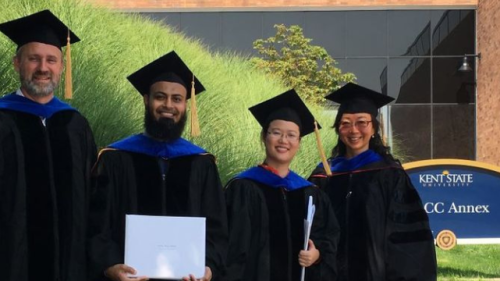The need for geospatial professionals has skyrocketed in recent years, with industries like urban planning, public health, transportation, and environmental management relying heavily on Geographic Information Science (GISc). An online Master’s in Geographic Information Science from Kent State University offers the skills, flexibility, and credentials needed to enter or advance in this high-demand field. Here’s why this program is your gateway to a thriving geospatial career.
A Growing Demand for GIS Professionals
GIS isn’t just a tool—it’s a critical component of solving global challenges. GIS professionals are integral to creating data-driven solutions, from mapping natural disasters to improving healthcare delivery. According to the U.S. Bureau of Labor Statistics, careers in GIS are projected to grow faster than the national average, making this an opportune time to pursue advanced education in the field.
High-Impact Career Opportunities
An advanced degree in GIS opens doors to diverse industries and roles, such as:
- GIS Analyst or Manager: Create and interpret geospatial data to inform decision-making.
- Environmental Consultant: Assess environmental impacts and recommend solutions using geospatial data.
- Urban Planner: Design efficient, sustainable cities with GIS technology.
- Public Health Specialist: Track and mitigate disease outbreaks with spatial data analysis.
With employers seeking professionals who can combine technical expertise with analytical skills, a Master’s in GISc positions you as a top candidate in this competitive field.
Kent State’s Online Master’s Program: Designed for Your Success
Kent State’s 100% online Master of Geographic Information Science program is tailored for busy professionals, offering flexibility without sacrificing academic rigor. Here’s how the program prepares you for success:
- Comprehensive Curriculum: Gain proficiency in spatial analysis, geospatial technology, and real-world problem-solving.
- Industry-Standard Tools: Master tools like ArcGIS and QGIS to create impactful maps and geospatial applications.
- Practical Applications: Engage in capstone projects that solve real-world challenges, giving you hands-on experience.
- Expert Faculty: Learn from leading professionals who bring industry insights to the virtual classroom.
A Flexible Path to Career Advancement
Balancing work, life, and education is a challenge many professionals face. Kent State’s 100% online program makes it easier by allowing you to complete coursework on your schedule. This flexibility empowers you to earn an advanced degree while maintaining your current job and responsibilities.
Become a Leader in the Geospatial Industry
By earning an online Master of Geographic Information Science, you’ll gain the skills and credentials needed to lead in this fast-growing field. Whether you’re looking to start a new career or advance in your current role, this program offers the tools to make an immediate and lasting impact.
Start Your Journey Today
Ready to invest in your future? Visit Kent State Online to learn more about the online Master’s in Geographic Information Science program and take the first step toward a high-demand career.







